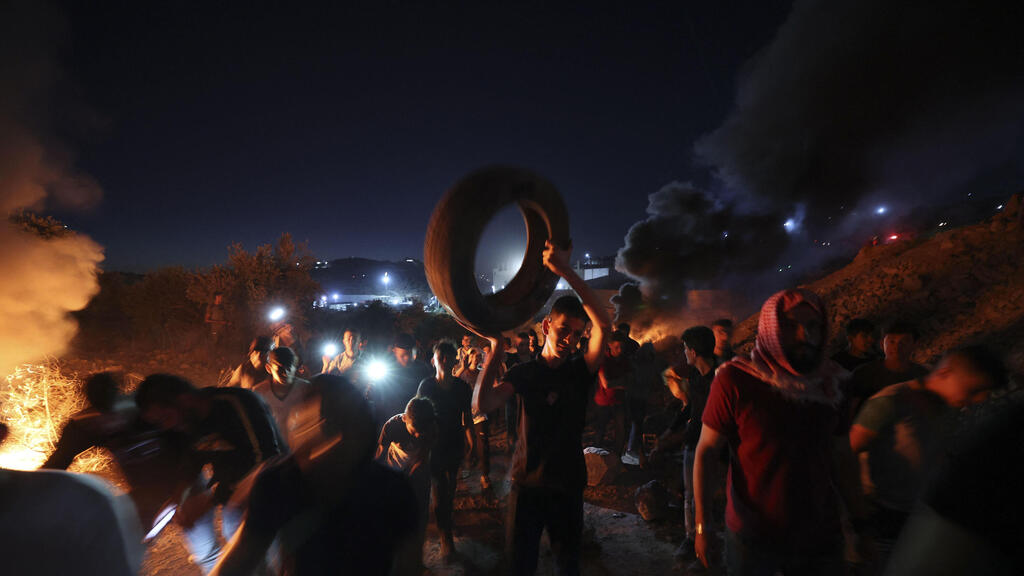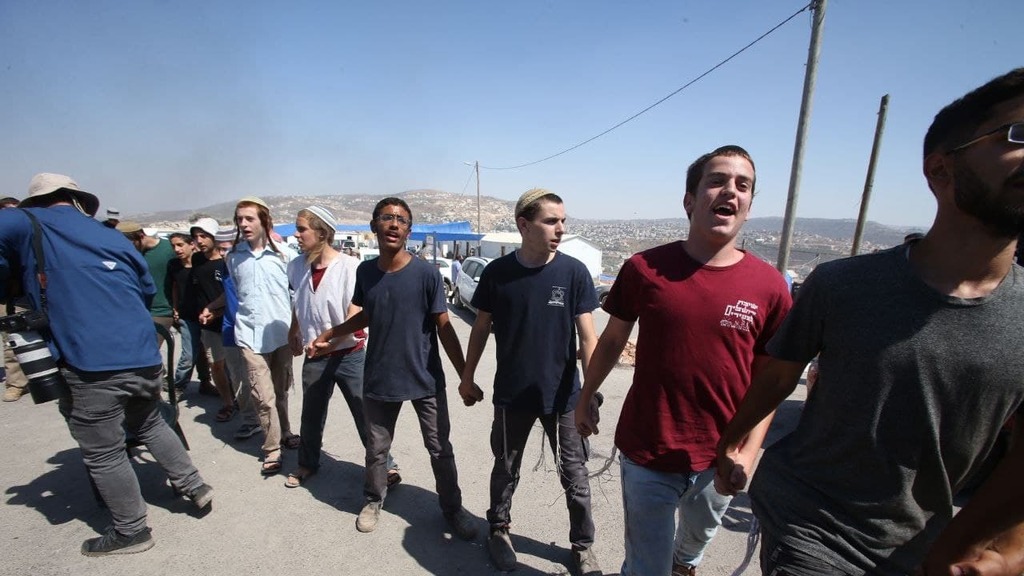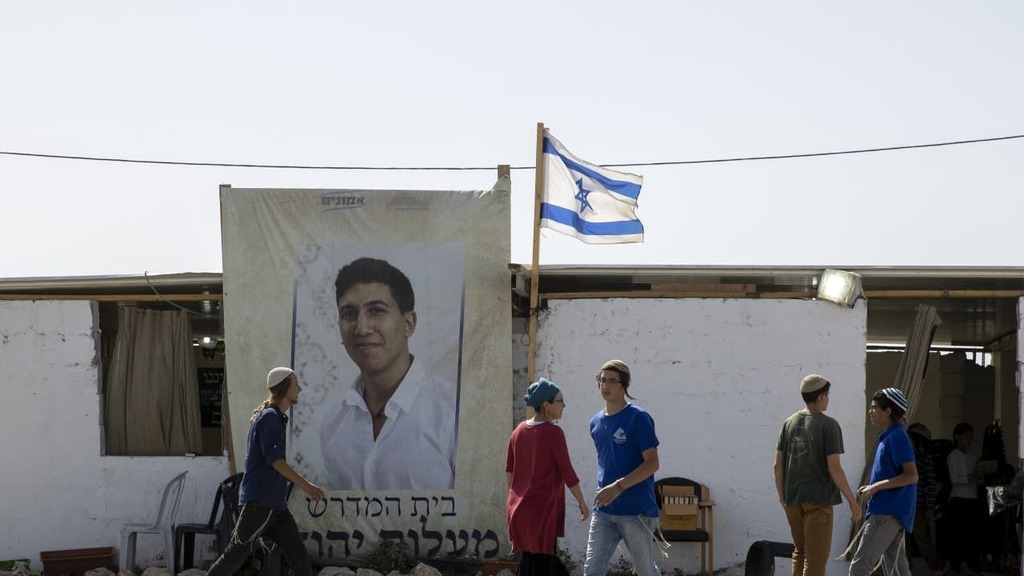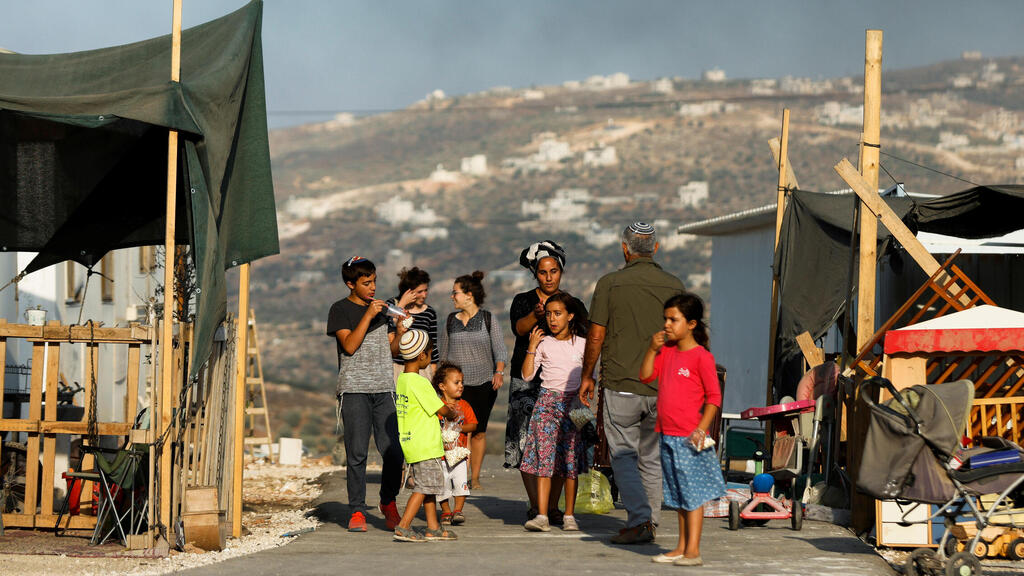Getting your Trinity Audio player ready...
Settlers at an illegal West Bank outpost said Wednesday morning that they would vacate the site by the end of the week to prevent a forceful evacuation, as part of a compromise presented by the government.
Under the terms of the deal, the settlers will leave the Eviatar outpost near Nablus and the ownership of the land will be determined within six months.
The government in return agreed to leave intact the stone structures already erected and deploy IDF troops to protect the site.
According to the agreement, if the land has no private Palestinian ownership, the settlers will be allowed to open a yeshiva (religious seminary) at the hilltop location and later bring families to settle there.
Residents of the neighboring Palestinian village of Beita said some of the land was indeed owned by Palestinians but have not provided any proof.
The villagers have conducted nightly protests and regularly clashed with security forces since the establishment of the outpost in early May. At least four residents of the village have died in violent confrontations with troops, including a teenaged boy.
5 View gallery


Residents of Palestinian village of Beita protest against the nearby illegal outpost of Eviatar
(Photo: AFP)
In anticipation of a forceful evacuation, settlers from all over the West Bank and supporters from across the country were bussed to the site earlier this week, in order to bolster the number of people there.
A resident of the outpost told Ynet that that "settling the land" should be supported by all Israelis.
The agreement reached after days of negotiations was proposed by Defense Minister Benny Gantz and Interior Minister Ayelet Shaked.
Gantz, who was also defense minister in the previous government, had ordered the outpost be removed but was blocked by then-prime minister Benjamin Netanyahu.
5 View gallery


Young settlers arrive at the illegal outpost of Eviatar to bolster numbers in anticipation of forceful removal by IDF
(Photo: Shaul Golan)
"This is not our dream deal," said Yossi Dagan, the head of Samaria Regional Council where the outpost is located.
"It requires us to take difficult steps and leave the site. But we will return once it is determined that the land is state owned," he said.
"We agreed to the government's proposal out of concern for the settlement [movement] and in order to foster unity in our troubled society," Dagan said.
"This community is the just Zionist response to terror attacks that killed Eviatar Borovsky [for whom the outpost is named] and Yehuda Guetta, and will grow and thrive," he said.
5 View gallery


An image of terror victim Yehuda Guetta is placed at the illegal West Bank outpost of Eviatar
(Photo: Amit Shabi)
Borovsky and Guetta were both killed in shooting attacks at the nearby Tapuch Junction in 2013 and last May, respectively.
The Eviatar outpost was set up in early May and quickly became home to 50 settler families who erected huts and tents and brought in trailer caravans in defiance of international and Israeli law.
Shaked said on Wednesday that she was satisfied that the compromise had been reached and that there would be no need for the use of force.
5 View gallery


Young settlers arrive at the illegal outpost of Eviatar to bolster numbers in anticipation of forceful removal by IDF
(Photo: Shaul Golan)
Zvi Elimelech, a representative of the Nahala settler movement behind construction at the site, said he accepted the government proposal in order to prevent destruction of the buildings there.
"I believe Eviatar will be the first of may Jewish settlements that will be built in the area," he said.


